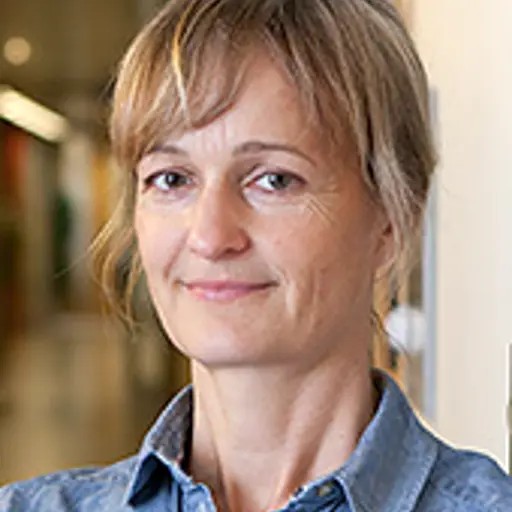The course syllabus contains changes
See changesCourse syllabus adopted 2021-02-17 by Head of Programme (or corresponding).
Overview
- Swedish nameCirkulär ekonomi
- CodeTEK680
- Credits7.5 Credits
- OwnerMPTSE
- Education cycleSecond-cycle
- Main field of studyEnergy and Environmental Systems and Technology
- DepartmentTECHNOLOGY MANAGEMENT AND ECONOMICS
- GradingTH - Pass with distinction (5), Pass with credit (4), Pass (3), Fail
Course round 1
- Teaching language English
- Application code 28117
- Maximum participants60
- Block schedule
- Open for exchange studentsYes
Credit distribution
Module | Sp1 | Sp2 | Sp3 | Sp4 | Summer | Not Sp | Examination dates |
|---|---|---|---|---|---|---|---|
| 0119 Examination 7.5 c Grading: TH | 7.5 c |
|
In programmes
- MPAEM - MATERIALS ENGINEERING, MSC PROGR, Year 2 (elective)
- MPDES - INDUSTRIAL DESIGN ENGINEERING, MSC PROGR, Year 2 (elective)
- MPMAR - MARITIME MANAGEMENT, MSC PROGR, Year 2 (elective)
- MPPEN - PRODUCTION ENGINEERING, MSC PROGR, Year 2 (elective)
- MPSES - SUSTAINABLE ENERGY SYSTEMS, MSC PROGR, Year 2 (elective)
- MPTSE - INDUSTRIAL ECOLOGY, MSC PROGR, Year 1 (compulsory elective)
- MPTSE - INDUSTRIAL ECOLOGY, MSC PROGR, Year 2 (elective)
Examiner
- Maria Ljunggren
- Associate Professor*, Environmental Systems Analysis, Technology Management and Economics
Eligibility
General entry requirements for Master's level (second cycle)Applicants enrolled in a programme at Chalmers where the course is included in the study programme are exempted from fulfilling the requirements above.
Specific entry requirements
English 6 (or by other approved means with the equivalent proficiency level)Applicants enrolled in a programme at Chalmers where the course is included in the study programme are exempted from fulfilling the requirements above.
Course specific prerequisites
Basic university-level knowledge in environmental science or environmental engineering.Aim
The course aims to provide students with a rich understanding of the merits and challenges of transitioning to a more resource-efficient and circular economy. Drawing from multiple disciplines, including engineering, management and sustainability sciences, students gain knowledge on underlying principles and visions as well as theory and tools that support the formulation and assessment of resource-efficient and circular measures. By exploring real-world examples, students synthesize and apply the knowledge gained.Learning outcomes (after completion of the course the student should be able to)
- Describe historic and future projections of natural resource use and associated sustainability challenges.
- Describe visions and underlying principles of various approaches to resource-efficiency and circular economy.
- Critically discuss the implications of increased resource-efficiency and circularity for sustainable development.
- Account for actors, their options, barriers and drivers for transitioning to a more resource-efficient and circular economy.
- Account for resource-efficient and circular physical strategies, their potential benefits and limitations.
- Formulate strategies towards increased resource-efficiency and circularity based on relevant theories, methods and tools from multiple disciplines.
- Assess strategies towards increased resource-efficiency and circularity based on relevant theories, methods and tools from multiple disciplines.
- Communicate orally and in writing the knowledge and skills acquired.
Content
A more circular economy is suggested as an essential contribution to a more sustainable, low carbon, resource-efficient and competitive economy. Strategies over the full life cycle - from design and production to use, reuse, repair, remanufacturing and recycling - are suggested as a way of maintaining the value of products, components, materials and elements for as long as possible. This may also create new opportunities for and requirements on businesses, users and policy makers across various stages of the value chain.The course aims to provide a rich
understanding of the circular economy, its opportunities and limitations as well as concrete examples of circular solutions
put into practice. It covers theory, methods
and tools from industrial ecology, product
design, production engineering, waste management,
supply chain management and policy, presented in the context of the circular
economy. Designed for students of various disciplinary
backgrounds, it aims to encourage students to combine previous and new
knowledge into a comprehensive understanding of the circular economy. Organised in three themes, the first one presents roots,
rationales and core elements of resource-efficiency and a circular economy.
Applying a systems perspective, both physical resource flows and actors are
traced over life cycles including options for and implications of change. The second theme addresses design, manufacturing, use, reuse,
repair, remanufacturing, recycling and waste management. In the third theme, which runs in
parallel with the others throughout the course, real-world examples of
resource-efficient and circular solutions are explored through various lenses,
aiming for gradual synthesis and application of the course content.
Organisation
The course is comprised by a series of lectures given by lecturers from various disciplines and by invited guests from industry and authorities. There are several major stand-alone exercises as well as shorter ones integrated in the lectures. A larger project is conducted in multi-disciplinary groups. Attendance at certain compulsory course activities is required to pass the course.
Literature
The literature is a collection of articles and reports available electronically at Chalmers library, google scholar or at the course website. All lectures slides (including guests) are part of the course requirements. The literature is announced at the course website no later than two weeks before the course starts.Examination including compulsory elements
The examination of the course comprises of an individual written exam and written and oral presentation of the group project. The final course grade is determined by the exam and the group project results. Attendance at certain compulsory course activities is required to pass the course.The course examiner may assess individual students in other ways than what is stated above if there are special reasons for doing so, for example if a student has a decision from Chalmers about disability study support.
The course syllabus contains changes
- Changes to examination:
- 2021-11-19: Examination time Examination time changed from Morning to Afternoon by Joakim Norbeck
[2022-01-03 7,5 hec, 0119] - 2021-10-18: Location Location changed from Halls at Lindholmen to Distance by moty
[2021-10-25 7,5 hec, 0119]
- 2021-11-19: Examination time Examination time changed from Morning to Afternoon by Joakim Norbeck
